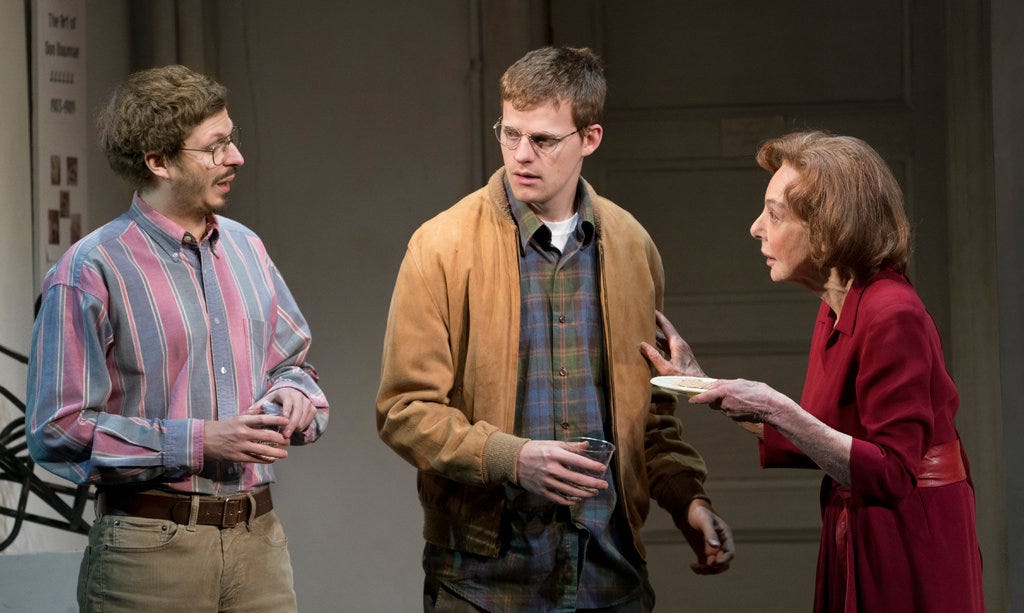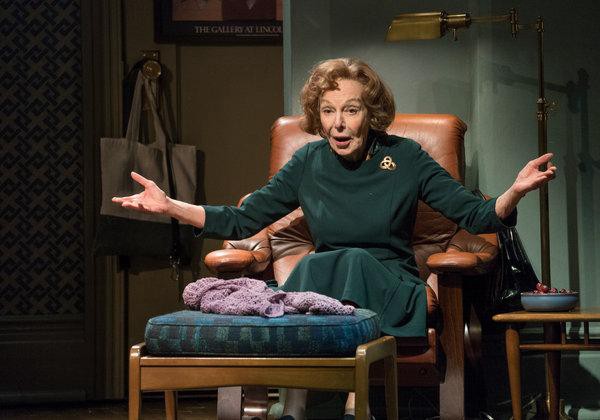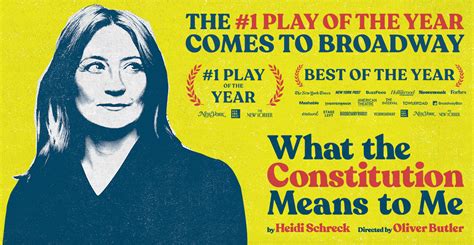Kenneth Lonergan’s “The Waverly Gallery” now on Broadway at the Golden Theatre, might as well be subtitled “The portrait of the actress as an old woman.” It stars Elaine May, who is approximately the same age as her octogenarian character Gladys. Despite — or because of — her age, Elaine May is giving what is bound to be one of the most powerful performances of the season.
Lonergan’s play, which is directed by Lila Neugebauer, is the story of the gradual decline in the health, hearing, and memory of Gladys, a remarkable woman who used to be a lawyer and now runs a small gallery in Greenwich Village. The piece is a memory play, sporadically narrated by her grandson Daniel, played by Lucas Hedges, one of the silver screens latest darlings. His performance is a bit stiff and awkward, but then again he is not given much to work with character-wise.
The same can be said of the other somewhat underdeveloped characters, notably the awkward and quirky artist, Don, played by Michael Cera, who is officially become Lonergan’s muse. Cera’s performance, like Hedges’, leaves a bit to be desired; their performances aren’t bad, they just are not noteworthy, especially next to the extraordinary presence of Elaine May.
This tension between the somewhat bland secondary characters and the fascinating and captivating Gladys is primarily an issue with the play. Like Lonergan’s other work, “The Waverly Gallery” explores very interesting themes, brings up some ethical dilemmas, and then sort of just ends, with things purposefully but frustratingly unresolved. Like last season’s “Lobby Hero,” this play has a similar effect to be entertaining for the duration of the performance, but afterwards it leaves a slight taste of wanting more.

However, “The Waverly Gallery” has a saving grace in the form of Elaine May. Throughout the piece her character’s mental stability deteriorates — she loses more and more of her ability to hear, to remember, to keep things straight, to sleep, and even to form words. The performance is so convincing it is at times difficult to remember that she is acting, that this is not an actual woman’s mind falling apart in front of your eyes. As she stumbles over words it is easy to assume that perhaps May has forgotten a line, but this is clearly not the case. She speaks over half of the lines of the play, many of which repeat in a labyrinth of ways, and it is incredibly clear that as an actress Elaine May is more than on top of it.
For those of us that have an aging family member like Gladys, the debates about “what to do with her” never end. Like Gladys, in life sometimes they are incredibly comedic in their forgetfulness, other times they are horribly annoying in their repetitions, and at moments they are devastatingly tragic in their fears. Elaine May goes through this entire spectrum, from asking Daniel the same questions over and over (yes he’s working hard, no he only cooks a little), to always trying to feed the dog scraps and constantly looking for her keys, to screaming about how she doesn’t want to leave her apartment and move somewhere else.
The play explores the ethics of care, the burden an aging family members puts on others, the nursing home debate, the retirement question, and most interestingly, the unspoken decision to lie to someone who is losing their memory. Sadly, the play does not resolve anything, but maybe it is because in life these issues are not easily resolved.






